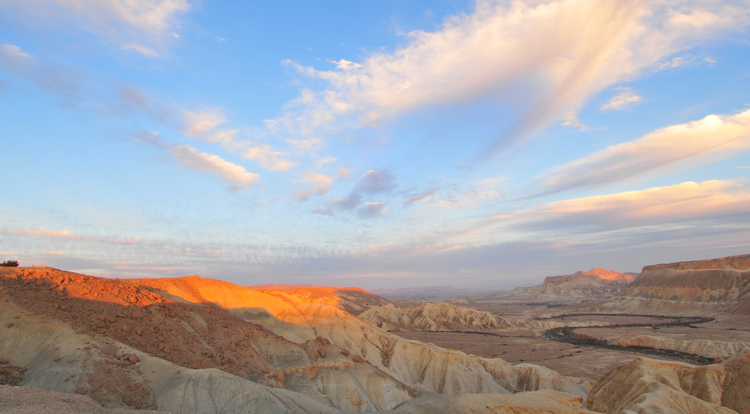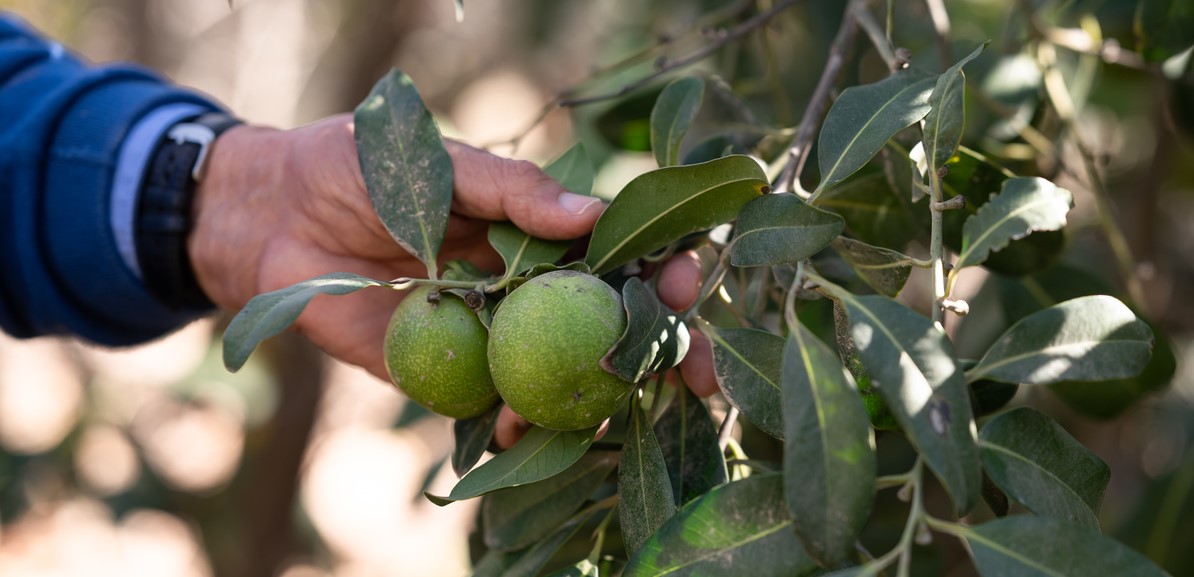With most of the world's cities projected to become hotter and drier in the years and decades ahead, desert environments are critical living labs for research on evolving environmental challenges and needs.

With the word “Negev" in our name, it's only right that BGU hold an advantage in all things desert. And that's a good thing for Israel, and for the world at large: With most of the world's cities projected to become hotter and drier in the years and decades ahead, desert environments can be critical living labs for research on evolving environmental challenges and needs.
Through the combined work of the BGU Energy Initiative and its Ben-Gurion National Solar Energy Center, the National Institute for Biotechnology in the Negev (NIBN), the Ilse Katz Institute for Nanoscale Science and Technology, the Unit of Energy Engineering, the Goldman Sonnenfeldt School of Sustainability and Climate Change, and the Blaustein Institutes for Desert Research (BIDR), BGU has become an international center for researchers in the fields of energy, water, biotechnology, agriculture, environmental physics, and more, and its three main campuses home to almost 150 research groups tackling climate change and sustainability. Thanks to our scientists' fundamental and applied research, as well as our emphasis on collaborations with other academic and industrial partners from Israel and abroad, BGU has become a world leader in many areas of sustainability, including renewable and alternative liquid fuels and solar-energy technologies.
From the Desert, for the World
The BIDR's interdisciplinary Zuckerberg Institute for Water Research, meanwhile, has made us the top-ranked university in Israel and one of the top 150 universities worldwide for research on hydrology and water engineering. Its technologies have solved water challenges for rural communities in Africa and farmers in California, and its graduates go on to occupy key positions in policy-making bodies and in the water desalination and treatment industry around the world.
At the BIDR's French Associates Institute for Agriculture and Biotechnology of Drylands (FAAB), scientists are engaged in cutting-edge basic and applicable research to empower sustainable agricultural solutions in places where conventional methods of agriculture are difficult to implement. Their work has resulted in technologies for more efficient irrigation methods and ways to enhance plants' natural growth abilities, all of which play critical roles in combatting food insecurity. And at the Swiss Institute for Dryland Environmental and Energy Research (SIDEER), we develop knowledge and technologies for improving human well-being in dryland environments, including the reduction of greenhouse gas emissions, the creation of “green cities," and novel aquaculture, ecotourism, and biotechnology livelihoods.
 The
The
BIDR also hosts the world's largest desertification conference: Held in partnership with the United Nations Convention to Combat Desertification, the annual conference brings together the top researchers and practitioners in the field to share strategies, information, and technologies and to build critical cross-disciplinary and cross-boundary partnerships.
Finally, our Negev Center for Sustainability promotes applied research with an emphasis on the interactions between social, cultural, economic, and environmental dimensions to a challenge, with implications for areas from industrial development to education in Bedouin communities. And through strategic partnerships with startups, investors, and the Israeli government, BGU has spearheaded the development of the world's first “desert-tech community" in Beer-Sheva's new Innovation District, aimed at turning the city of Beer-Sheva and the Negev region into a center for the ideas and innovations that will facilitate a sustainable future for us all.
A Comprehensive Approach to a Complex Environmental Challenge
To leverage our scientists' remarkable expertise into comprehensive solutions for problems arising from global warming and the challenges of sustainability, BGU aims to increase opportunities for collaboration between faculties, departments, and campuses, with the goal of dramatically increasing research outputs in all related fields.
In addition, BGU aims to bring faculty from the BIDR and the fields of geography, earth sciences, life sciences, and environmental engineering together in a new School of Sustainability and Climate Change, offering unique inter-disciplinary majors and degrees. Such a school will prepare a larger number of graduates to address the ecological, social, and economic issues related to sustainability in integrated ways, with benefits for Israel, and for the world at large.
Finally, the new school will offer a complete undergraduate degree in English, alongside our popular graduate degrees in individual departments and institutes. This will encourage the internationalization of the university, both through the presence of more overseas students and talented faculty.

Support BGU's efforts to secure a sustainable state and world >>
